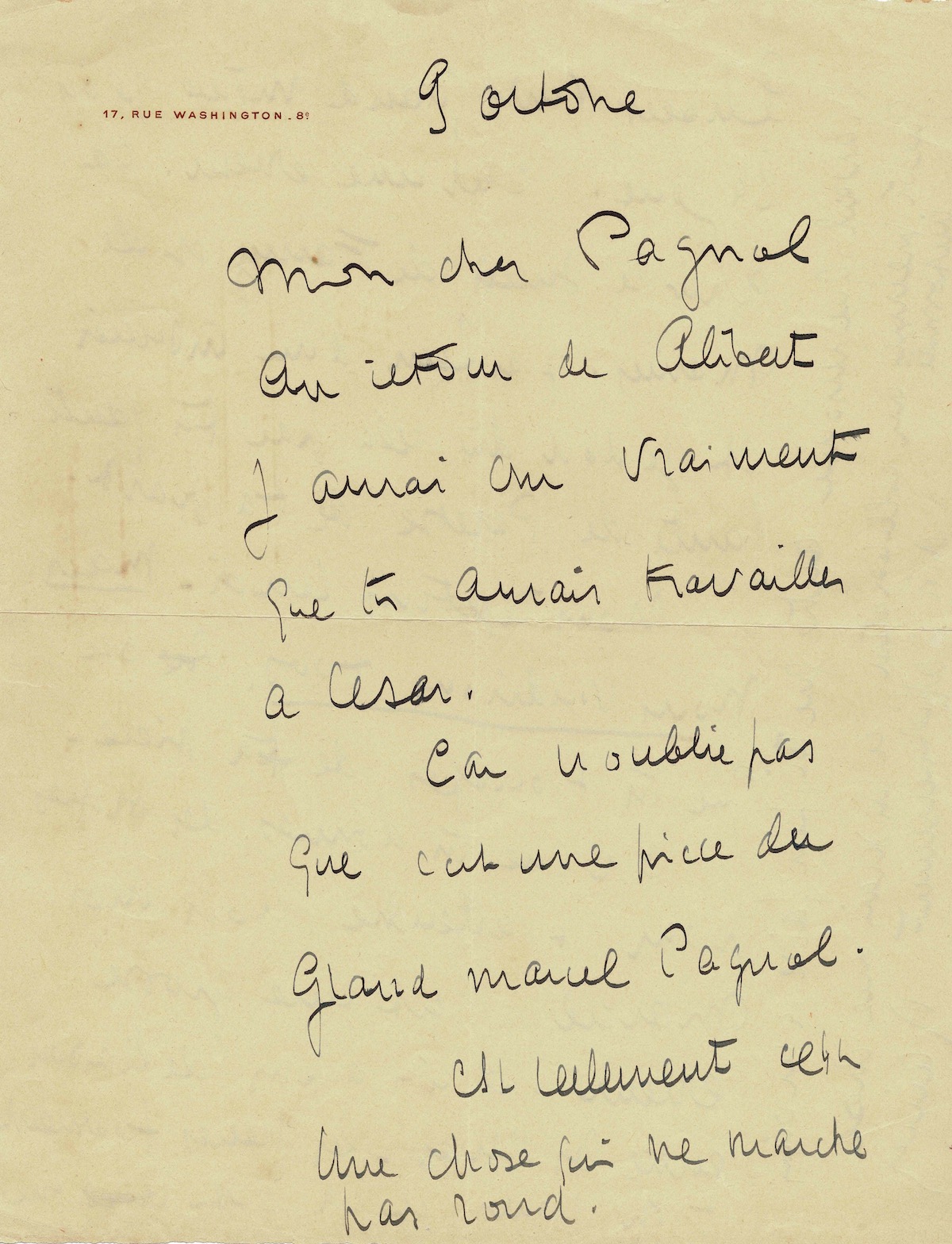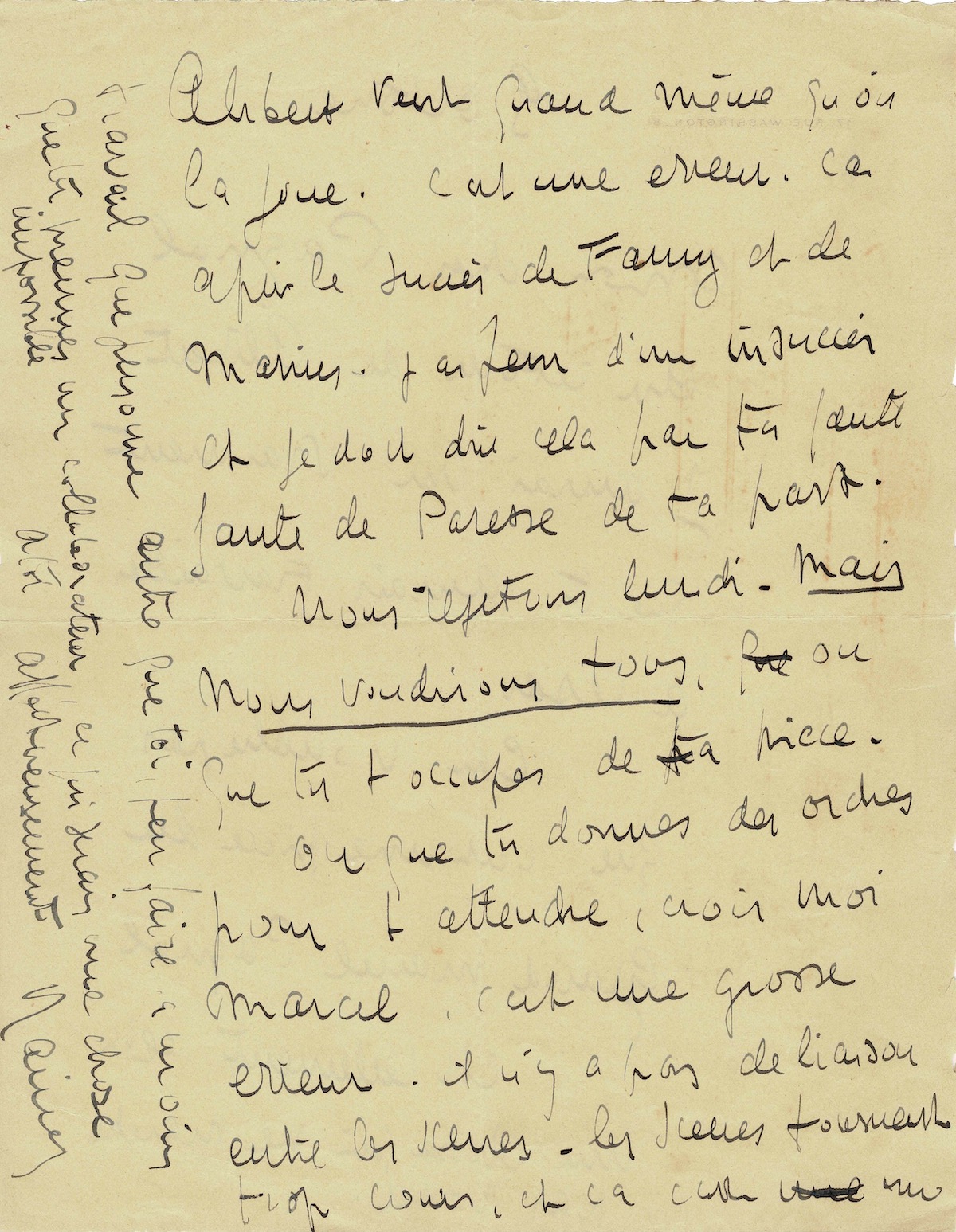Jules MURAIRE known as RAIMU (1883.1946)
Autograph letter signed to Marcel Pagnol.
Two large pages in-4° on paper with frayed edges and addressed to him.
Paris. October 9 [1935]
“After the success of Fanny and Marius, I fear failure…”
Great letter from the actor with a friendly and directive tone, to its author Marcel Pagnol, taunting him for his laziness in finally finalizing César, the third part of the Marseille Trilogy after Marius and Fanny.
_________________________________________________
“ [Henri] Alibert returned, I would have really believed that you would have worked at César. Because don't forget that it's a piece by the great Marcel Pagnol. And it's just something that doesn't work out. Alibert still wants us to play it. It is a mistake. Because after the success of Fanny and Marius, I am afraid of failure and I must say that it is your fault, lack of laziness on your part.
We rehearse on Monday. But we would all like you to either take care of your room, or give orders to wait for you: believe me Marcel, it's a big mistake. There is no connection between the scenes. The scenes are too short, and that's a job that no one other than you can do. Unless you take on a collaborator, which would be an impossible thing. Yours. Affectionately Raimu »
_________________________________________________
Unlike the first two theatrical parts of the Marseille Trilogy , Marius (1929) and Fanny (1931), Pagnol chose to write César directly for the cinema. Made in 1936, the film was released on November 11 of that same year, with Raimu in the title role, Pierre Fresnay as Marius and Orane Demazis as Fanny .
Pagnol himself indicates in the preface to César [Complete Works] , that the cinematic choice was imposed on him in the face of the impossibility of bringing together the actors of the trilogy for more than two months in a row in the theater: “The absence of Raimu and the successive departures of the creators of the other roles would put us at great risk […] The Paris offices summoned the actors, who were immediately hired, for a date a little too early for my taste: but because of the contracts that several had already signed for other films, I only had a month to write my work […] I therefore set to work with complete confidence, and I easily wrote the first sequences of the film; but my work was constantly interrupted by the telephone, the masons, the carpenters, the decorators, the prop makers, who were already preparing the realization...
The film was adapted for the theater by Pagnol ten years later, and the play premiered in 1946 at the Théâtre des Variétés. Henri Alibert replacing Pierre Fresnay in the play.


